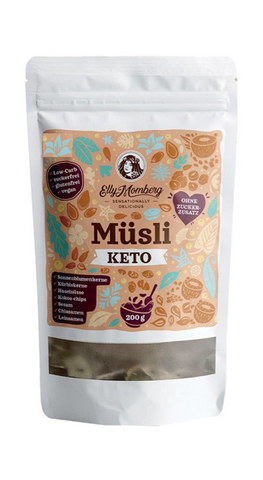Flaxseed also known as linseeds are small oil seeds that originated in the Middle East thousands of years ago. Flax is one of the oldest cultivated crops 2. It has a mild, nutty flavour and crunchy texture. Flaxseeds contain high amount of omega-3 fats, fibre and other unique plant compounds 3. They have been linked to improved digestion and a reduced risk of type 2 diabetes, cancer and heart disease. Read on to explore more about the health benefits of flax.
Omega-3
Flaxseeds are high in fat and one of the richest dietary sources of the omega 3 fatty acid ALA, which cannot be produced by the body but must be obtained by food 3. Several studies have linked ALA to a lower risk of heart disease 4. Omega-3 fatty acids are essential for heart health, blood platelet function, inflammation, blood pressure and decreasing the risk of chronic diseases 5.
Fibre
Flaxseed are made up of 29% carbohydrates, 85% coming from fibre, making them a low-carb food 6. Fibre helps regulate blood sugar and cholesterol and promotes regularity preventing constipation 7. The fibre can help reduce hunger and control appetite, which may promote weight loss 8.
Diabetes
Consuming flaxseed may reduce your risk of diabetes 9 and in studies of people with type 2 diabetes it may reduce fasting blood sugar by up to 19% 10.
Good news, here at Elly Momberg many of our products contain flaxseeds. Our flaxseed crackers are mostly made of flax, and our keto granolas contains flaxseed too.


- Heathline (2019) Flaxseed.
- AGMRC (2022) Flax Profile.
- Singh. KK., et al. (2011) Flaxseed: a potential source of food, feed and fiber. Crit Rev Food Sci Nutr, 51(3) pp210-22.
- Xu. B., et al. (2021) Effect of n-3 polyunsaturated fatty acids on ischemic heart disease and cardiometabolic risk factors: a two-sample Mendelian randomization study. BMC Cardiovasc Disord. 8;21(1) p532
- Bassett. CM., Rodriguez-Leyva. D., and Pierce. GN. (2009) Experimental and clinical research findings on the cardiovascular benefits of consuming flaxseed. Appl Physiol Nutr Metab. 34(5) pp 965-74.
- Kajla. P., Sharma. A., Sood. DR. (2015) Flaxseed-a potential functional food source. J Food Sci Technol. 52(4) pp1857-71.
- Kristensen. M., et al. (2012) Flaxseed dietary fibers lower cholesterol and increase fecal fat excretion, but magnitude of effect depend on food type. Nutr Metab (Lond). 3;9:8.
- Kristensen. M., et al. (2013) Flaxseed dietary fibers suppress postprandial lipemia and appetite sensation in young men. Nutr Metab Cardiovasc Dis. 23(2) pp136-43.
- Talaei. M., and Pan. A. (2015) Role of phytoestrogens in prevention and management of type 2 diabetes. World J Diabetes. 15;6(2) pp 271-83.
- Kapoor, S., Sachdeva, R., and Kochhar, A. (2011) Efficacy of Flaxseed Supplementation on Nutrient Intake and Other Lifestyle Pattern in Menopausal Diabetic Females. Ethno Med. 5(3) p153

